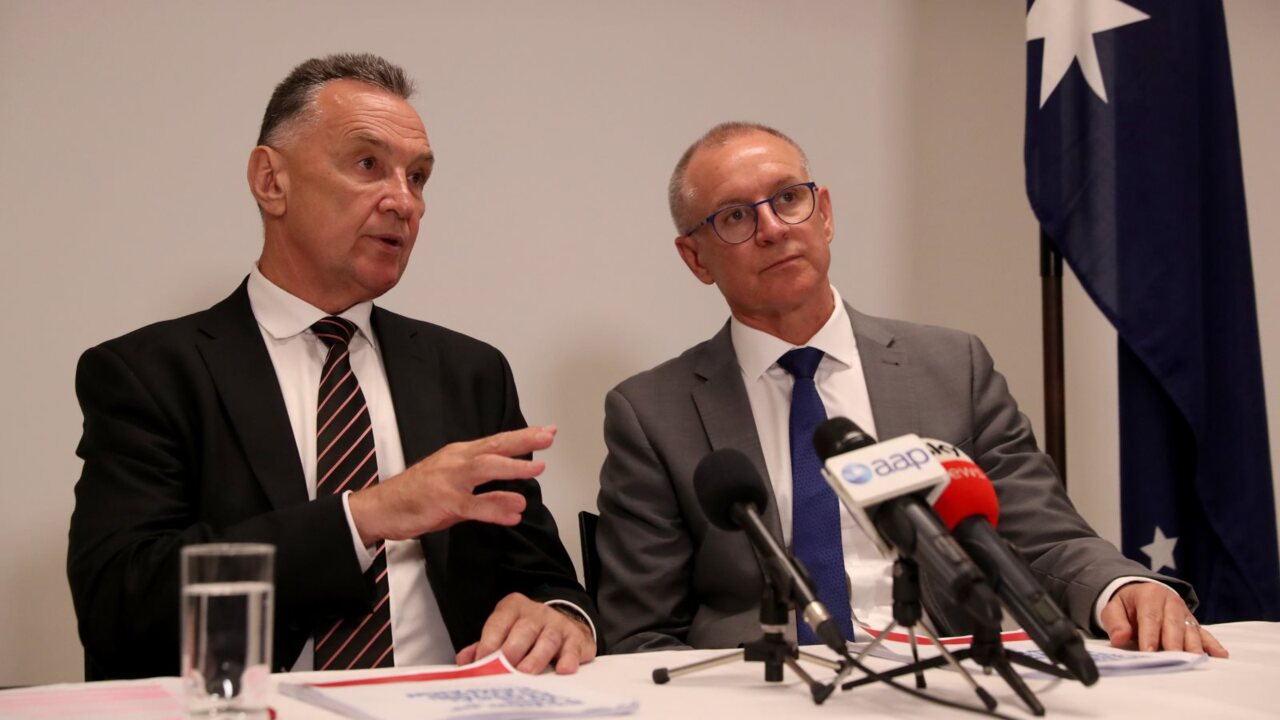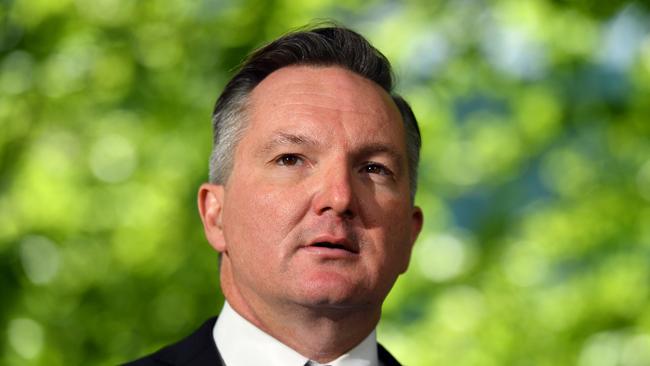Sharri Markson: Why Labor’s ex-leaders still don’t get it
Labor can support its progressive causes, but it cannot prioritise them at the expense of its core constituency of workers if it wants to ever return to government, writes Sharri Markson.

Opinion
Don't miss out on the headlines from Opinion. Followed categories will be added to My News.
Six months after their election loss, Labor now has a 90-page review to explain the defeat, but senior Labor figures still don’t get it.
Hours after the report was released, Chris Bowen gave a speech in Western Sydney to honour Paul Keating but refused to admit that any of the policies Labor took to the election cost them the victory.

Instead, he reportedly said the problem was there was no coherent narrative tying any of the individual policies together — and blamed the outcome on a “pandemic of populism” among voters in the mould of Brexit and Trump’s victory.
If Chris Bowen has failed to comprehend something as simple as voters not wanting to elect a government that would tax them more, how could he ever have hoped to be a treasurer or dreamt of yet loftier ambitions, to actually lead?
As for Bill Shorten, the former union boss has been defeated twice at federal polls. Most opposition leaders don’t get more than one shot in the locker. This bloke has had two.
Yet, reading between the lines of the statement he released on Thursday, Shorten still seems to be harbouring future ambitions.
He said he intends on sticking around in parliament for the next 20 years, spoke of what he’d do differently if he had a “re-run” and heaped blame on the increased spending on attack ads against him from the likes of Clive Palmer, along with franking credits.
Had Shorten won, the victory would have been his. But his loss is everyone else’s fault.
The polite terminology used in Labor’s review was that Shorten’s approval ratings were low and compared poorly with Scott Morrison’s. But let’s be less polite. Voters couldn’t stand him.
On top of that, Shorten led a shocking campaign that had no strategy and didn’t connect with what Australians want out of life.
What was the point in commissioning a review into their loss if, within hours of its release, both the would-be prime minister and treasurer dismissed its findings to protect their own fragile egos?
And instead Bowen and Shorten want to blame populism. Brexit. Global trends. Anything but look in the mirror.

To be fair, Craig Emerson and Jay Weatherill, who conducted the review into Labor’s loss mostly get it. Their document said that Labor “should adopt the language of inclusion, recognising the contribution of small and large businesses to economic prosperity, and abandon derogatory references to ‘the big end of town’.”
The review put it perfectly when it said of Labor’s redistributive agenda that “for every winner there was a loser, and a loss weighs more heavily on a voter’s decision than a gain’’.
The review also found that “the groups of voters who swung most strongly against Labor were self-described Christians and economically insecure, low-income voters who do not like or follow politics’’.
These are Scott Morrison’s quiet Australians.
And while voters were so worried about the impact of Labor’s policies on their hip-pocket, were they given reassurance from Labor leaders that everything would be OK?
Nope. The Labor review refers to an attitude that took hold as “complacency”, a.k.a., arrogance.
When concerns were raised with Bowen about the impact of franking credits, he said that if people didn’t like it they shouldn’t vote for them.

Shorten, meanwhile, expected victory so much that after Bob Hawke’s death the review notes he didn’t bother campaigning on the final day of the campaign while Morrison continued to hit marginal seats.
Had Shorten and his mates read this newspaper a bit more closely in the couple of years leading up to the federal poll, they might not have needed to wait six months until after the election to read about why their policies were unpalatable with voters.
In July, 2017 The Daily Telegraph ran a front page designed to show how, if Labor won the election, Shorten’s policies would hit Australians. The policies had all been quietly announced but no one had paid much notice at the time.
This was a crucial paragraph that I wrote in that front-page story, which imagined life after a Labor victory: “A triumphant Mr Shorten quickly moved to lift personal and company taxes, scrap negative gearing, introduce a 50 per cent renewable energy target and force small business to pay more for hiring workers on Sundays.”
Two years before the federal election, we knew, we understood, Labor’s policies were problematic.
But the front page confused Labor’s staff, who stupidly pinned it up in Shorten’s office in Canberra, actually proud of it!
They didn’t get — and apparently still don’t — that these policies were always going to be unacceptable to voters.
“Working people experiencing the dislocation caused by new technologies and globalisation could lose faith in Labor if they do not believe Labor is responding to their issues but is focusing on issues not of concern to them, or in some cases, are actively against their interest,” the review stated.

This directly relates to families of workers, including those in the mining industry.
Where Labor, which was once the party for the worker, it is now the party for the environmentalists who want to stop the very means by which this worker is able to support his family and livelihood.
This is Labor’s identity crisis. It is caught between its former incarnation of backing the low and middle-income worker and its current incarnation of a progressive party that prioritises the causes of the comfortable above all else.
“Competing constituencies” is how Labor’s review put it.
If this identity crisis remains unresolved, Labor will struggle to win government. Labor has only one choice if it wants to climb out of the opposition trenches.
It can support its progressive causes — it is a progressive party after all. But it cannot prioritise them at the expense of its core constituency of workers if it wants to ever return to government.
